The 2026 Congressional Elections took place on November 3, 2026, to select members of the 119th Congress. This was the first election to take place after the extra round of redistricting caused by the passing of the For the People Act, as well as the first time that the state of Washington, Douglass Commonwealth elected voting representatives. Up for election were the 34 Class II United States Senate seats and all 435 seats of the United States House of Representatives, as well as Senate special elections in Washington, Douglass Commonwealth and Massachusetts.
Senate Election[]
| ‹ 2024 | |||||
| 2026 United States Senate Elections | |||||
|---|---|---|---|---|---|
| 36 of 102 Senate Seats | |||||
| November 3, 2026 | |||||
| First party | Second party | Third party | |||

|

|
||||
| Leader | Charles Schumer | Mitch McConnell (Retired) | |||
| Party | Democratic | Republican | Independent | ||
| Leader since | January 3, 2017 | January 3, 2007 | |||
| Leader's seat | New York | Kentucky | |||
| Seats before | 51 | 47 | 1 | ||
| Seats after | 49 | 51 | 1 | ||
| Fourth party | |||||
| Party | Progressive
| ||||
| Seats before | 1 | ||||
| Seats after | 1 | ||||
The 2026 United States Senate elections were held on November 3, 2026, with 34 of the 100 seats in the Senate being contested in regular elections, the winners of which would serve six-year terms in the United States Congress from January 3, 2027, to January 3, 2033. Two special elections to fill vacancies in the Senate were also held in conjunction with the general elections, with one in Massachusetts and one in Washington, Douglass Commonwealth. Senators are divided into three groups, or classes, whose terms are staggered so that a different class is elected every two years. Class II senators were last elected in 2020, and were up for election again in 2026. Of the Class III Senators up for re-election, 14 were members of the Democratic Party, and 18 were held by Republicans, and 2 were vacant. Democrats had used there complete control of Washington to nuke the filibuster and pass many bills, including the Equality Act and the For the People Act, the later of which triggered an extra round of redistricting. They had also granted statehood to Washington, Douglass Commonwealth, meaning that there were now 102 Senate seats. Democrats managed to hang on to control of the Senate just barely, crafting a 51-51 tie, with Vice President Andy Beshear casting tie-breaking votes. Additionally, Senate Minority Leader Mitch McConnell retired, and his leadership position went to John Thune of South Dakota.
Special Elections:[]
Retiring Incumbents in Safe States:[]
| State | Retiring Incumbent | Replaced By |
|---|---|---|
| Colorado |  |
 |
| Idaho | Jim Risch (R) |
Janice McGeachin (R) |
| Illinois | Dick Durbin (D) |
Lauren Underwood (D) |
| Kentucky | Mitch McConnell (R) |
Daniel Cameron (R) |
| Maine | Susan Collins (R) |
Ryan Fectau (D) |
| Massachusetts | Ed Markey (D) |
Ayanna Pressley (D) |
| Oklahoma | Jim Inhofe (R) |
Kevin Stitt (R) |
| Rhode Island | Jack Reed (D) |
David Cicilline (D) |
| South Carolina | Lindsey Graham (R) |
Nikki Haley (R) |
| West Virginia | Shelly Moore Capito (R) |
Patrick Morrisey (R) |
Close Races in which the Incumbent Retired:[]
| State & Race Summary | Incumbent | Winner, Loser, and Margin of Victory |
|---|---|---|
| New Hampshire || Jeanne Shaheen was a very popular incumbent in a swing state, similar to Bob Casey Jr. in Pennsylvania. So when she announced her retirement, Republicans jumped at the oppurtunity. Kelly Ayotte, the former Governor and former Senator for New Hampshire's other seat, defeated Chris Pappas, the incumbent Governor, very narrowly. | 
Jeanne Shaheen (D) |
 |
| Texas || John Cornyn was expected to possibly take over as minority leader, but he retired instead. George P. Bush, the Texas AG of the Bush Dynasty, defeated Julian Castro, the HUD Secretary and former San Antonio Mayor. | John Cornyn (R) |
George P. Bush (R) || Defeated Julian Castro || 9.1% |
Close Races Featuring an Incumbent:[]
| State & Race Summary | Winner | Defeated, Margin of Victory |
|---|---|---|
| Georgia || Jon Ossoff had been elected very narrowly in 2020, and many thought that Georgia could be an easy GOP pickup. Geoff Duncan, the former Lt. Governor, and staunchly anti-Trump Republican, was able to defeat Ossof. | Geoff Duncan (R) |
Jon Ossoff (D) INCUMBENT || 5.3% |
| Michigan || This was seen as another prime pickup opportunity for the GOP. Despite the nationwide victory of President Harris in 2024, this state had stayed close. John James, who had also ran against Peters in 2020, was able to gain a victory and a flip. | John James (R) |
Gary Peters (D) INCUMBENT || 7.4% |
| Minnesota || Minnesota had not been the swingiest of states recently, but this election changed that. Congresswoman Michelle Fischbach, the former Lt. Governor, defeated Tina Smith, becoming the first Republican senator in the state in 22 years. | Michelle Fischbach (R) |
Tina Smith (D) INCUMBENT || 3.0%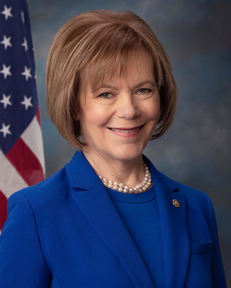 |
| North Carolina || Many expected for this seat to already be under Dem control, but Thom Tillis had held on in 2020. He defeated Josh Stein, the state AG, in a race that was a tossup to the very end. | Thom Tillis (R) INCUMBENT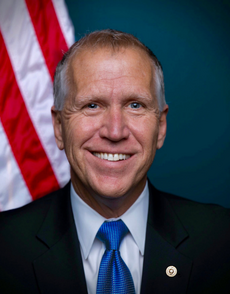 |
Josh Stein (D) || 5.3% |
Incumbents Safely Re-elected:[]
| State | Re-Elected Incumbent |
|---|---|
| Alaska | Dan Sullivan (R) |
| Arkansas | Tom Cotton (R) |
| Delaware | Chris Coons (D) |
| Iowa | Joni Ernst (R)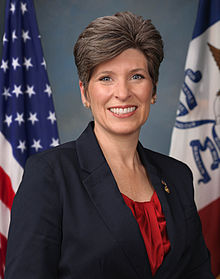 |
| Kansas | Roger Marshall (R) |
| Louisiana | Bill Cassidy (R) |
| Mississippi | Cindy Hyde-Smith (R) |
| Montana | Steve Daines (R) |
| Nebraska | Ben Sasse (R) |
| New Jersey | Cory Booker (D)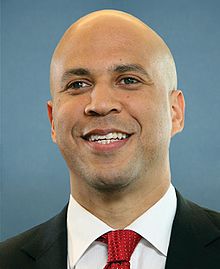 |
| New Mexico | Ben Ray Lujan (D)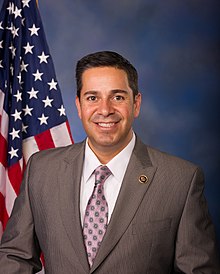 |
| Oregon | Jeff Merkley (D) |
| South Dakota | Mike Rounds (R) |
| Tennessee | Bill Haggerty (R) |
| Virginia | Mark Warner (D) |
| Washington, Douglass Commonwealth | Susan Rice (D) |
| Wyoming | Cynthia Lummis (R) |
House Elections[]
| ‹ 2024 | ||||
| 2026 United States House of Representatives elections | ||||
|---|---|---|---|---|
| 435 (218 Needed for Majority) | ||||
| November 3, 2026 | ||||
| First party | Second party | |||
| File:John katko.png | 
|
|||
| Leader | John Katko | Hakkem Jeffries | ||
| Party | Republican | Democratic | ||
| Seats before | 192 | 243 | ||
| Seats won | +30 | -30 | ||
| Seats after | 222 | 213 | ||
The 2026 United States House of Representatives elections were held on November 3, 2026, with all of the 435 seats in the chamber being contested in regular elections, the winners of which would serve two-year terms in the United States Congress from January 3, 2027, to January 3, 2029. It was the first round of House Elections to take place following the extra round of redistricting triggered by the For The People Act. The chamber flipped for the 3 cycle running, with Republicans able to take back control. They were able to use President Harris's unpopularity as an asset, flipping 30 seats. Many extremely pro-Trump representatives lost in primary competitions, in a phenomenon similar to 2010's Tea Party wave. And in a huge win for anti-Trump Republicans, Kevin McCarthy (R-CA) was ousted from his leadership position and was replaced by John Katko (R-NY), who became the new Speaker of the House.


